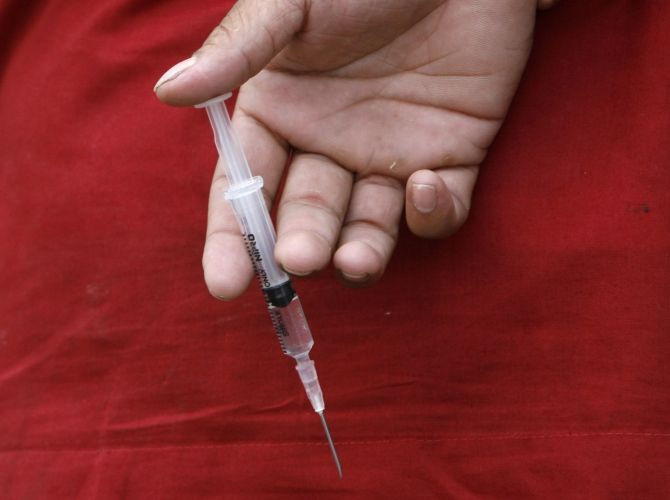Deadly Meningitis Outbreak That Has Killed 5 Linked to Medication, May Have Been Shipped to 23 States

The meningitis outbreak that has killed five and infected 35 in six states has been linked to a steroid medication. The medication has apparently been shipped to 23 states and was administered to over 900 patients in Tennessee alone.
The medication came from a commonly used steroid injection used to control back pain. It was tainted with a fungus frequently found in leaf mold. The three batches of the drug, Methylprednisolene Acetate, have all been traced to a Massachusetts pharmaceutical compounding company. The three batches have been recalled in a tacit admission that this situation may become even worse, totaling over 17,000 vials. Some were returned unused, but many were used. And, because meningitis symptoms can manifest as late as a month after infection, doctors are understandably concerned.
The New England Compounding Company (NECC), responsible for the outbreak, has voluntarily surrendered their license. Compounding pharmacies take medications from drug manufacturers and bundle them into specific dosages and strengths for doctors. The drug ingredients are regulated by the federal government agency the Food and Drug Administration, but compounders are regulated by state bureaus. Health officials inspected the pharmacy as recently as last year and found nothing, but the Massachusetts public health director safety, Madeleine Biondolillo, said that they are encouraging hospitals to stop using any medications from the NECC just to err on the side of caution.
Tennessee has been hardest hit by this fungal meningitis outbreak. Three of the five deaths have been from the state; the other confirmed cases were in Virginia and Maryland. Of the total 35 infections nationwide, 25 of the infections have been in Tennessee.
Health officials are unsure how many of the people who have received the tainted medication will become sick, but many are optimistic. "At the moment, fortunately, the attack rate looks pretty low - less than 1 percent -- but we are still in the early days of defining this thing," Dr. William Schaffner, an infectious disease expert from the Vanderbilt University School of Medicine, said.
A total of 75 facilities are believed to have received the tainted medication. The 23 possible states affected are: California, Connecticut, Florida, Georgia, Idaho, Illinois, Indiana, Maryland, Michigan, Minnesota, North Carolina, New Hampshire, New Jersey, Nevada, New York, Ohio, Pennsylvania, Rhode Island, South Carolina, Tennessee, Virginia, Texas and West Virginia.
Meningitis is an inflammation of the lining of the brain and spinal cord. Symptoms include nausea, vomiting, and hallucinations. Fungal meningitis is not contagious from person to person. It can be deadly if left untreated.



























